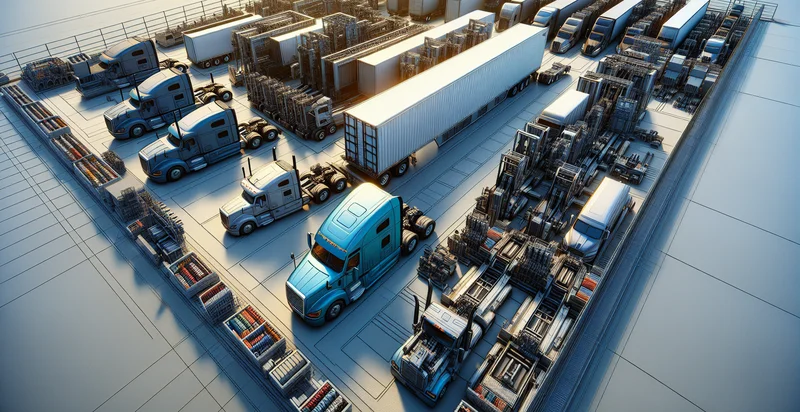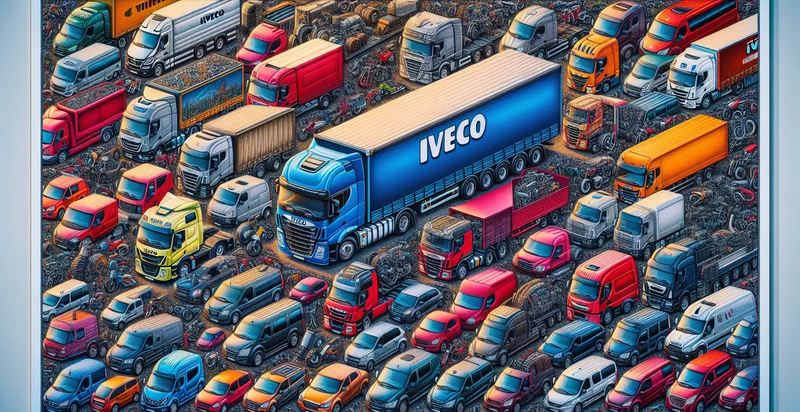Identify freightliner models
using AI
Below is a free classifier to identify freightliner models. Just upload your image, and our AI will predict if the model is a Freightliner or not - in just seconds.

Contact us for API access
Or, use Nyckel to build highly-accurate custom classifiers in just minutes. No PhD required.
Get started
import nyckel
credentials = nyckel.Credentials("YOUR_CLIENT_ID", "YOUR_CLIENT_SECRET")
nyckel.invoke("freightliner-models", "your_image_url", credentials)
fetch('https://www.nyckel.com/v1/functions/freightliner-models/invoke', {
method: 'POST',
headers: {
'Authorization': 'Bearer ' + 'YOUR_BEARER_TOKEN',
'Content-Type': 'application/json',
},
body: JSON.stringify(
{"data": "your_image_url"}
)
})
.then(response => response.json())
.then(data => console.log(data));
curl -X POST \
-H "Content-Type: application/json" \
-H "Authorization: Bearer YOUR_BEARER_TOKEN" \
-d '{"data": "your_image_url"}' \
https://www.nyckel.com/v1/functions/freightliner-models/invoke
How this classifier works
To start, upload your image. Our AI tool will then predict if the model is a Freightliner or not.
This pretrained image model uses a Nyckel-created dataset and has 2 labels, including Cascadia and M2.
We'll also show a confidence score (the higher the number, the more confident the AI model is around if the model is a Freightliner or not).
Whether you're just curious or building freightliner models detection into your application, we hope our classifier proves helpful.
Related Classifiers
Need to identify freightliner models at scale?
Get API or Zapier access to this classifier for free. It's perfect for:
- Fleet Management Optimization: The True image classification function can be integrated into fleet management systems to identify and categorize various Freightliner models in real time. This capability allows logistics companies to track the types of vehicles they have in operation, facilitating better fleet utilization and maintenance scheduling.
- Automated Quality Control: In manufacturing facilities that produce Freightliner components, image classification can be employed to ensure that the correct parts are being used in assembly lines. By automatically verifying model specifications through images, companies can reduce errors and improve production efficiency.
- Insurance Claim Processing: Insurance companies can utilize image classification to quickly identify Freightliner models involved in accidents during the claims process. By accurately categorizing vehicles, insurers can expedite evaluations and settlements, enhancing customer satisfaction.
- Market Analysis and Trends: Automotive analysts can use the image classification function to gather data on the prevalence of different Freightliner models in various regions. This information can help manufacturers and marketers understand market trends and make informed decisions about distribution and production strategies.
- Salvage Yard Inventory Management: Salvage yards can implement image classification to catalog and manage their inventory of Freightliner models. This functionality can streamline the process of identifying parts for resale and enhance the organization of the yard, ultimately improving sales efficiency.
- E-Commerce Verification: Online platforms that sell Freightliner parts can leverage image classification to verify listings against actual products. This helps maintain inventory accuracy and user trust by ensuring that customers receive the correct components for their specific vehicle model.
- Enhanced Customer Support: Customer service teams can use the image classification function to quickly identify Freightliner models when customers send in images for support inquiries. This enables representatives to provide tailored advice and troubleshooting based on the specific model in question, leading to improved customer experience.


